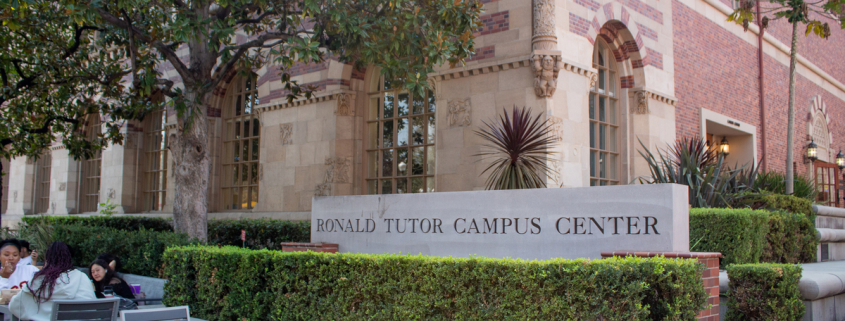TCC restaurant changes lead to mixed reviews

The Tutor Campus Center offers several restaurants as alternatives to the dining halls: Burger Crush, Taco-Taco, C&G Juice, Filone’s, Panda Express, Slice Shop and Seeds. However, some students recall a time when the TCC lineup was different: Taco-Taco used to be Verde, Burger Crush used to be a Carl’s Jr. and Seeds Marketplace used to have a Lemonade. As recently as last semester, The Kitchen — which had been open only for a year — was replaced by Filone’s Pasta Kitchen and Slice Shop. These changes in dining options have raised concerns about increased pricing and less variety among the student body.
“I’m surprised to see how frequently things come in and out,” said Sophia Lee, a senior majoring in biological sciences.
In a statement to the Daily Trojan, Assistant Vice President of USC Hospitality Dirk De Jong said the changes were a consequence of the coronavirus pandemic.
“Because of the pandemic, many concept changes that were previously planned had to be delayed or adjusted due to the overall COVID-19 response of the University,” De Jong wrote. “This resulted in an unusual amount of concept changes this year to get us back to our goal of relaunching the Campus Center as a dining destination with a full variety of menu options.”
While TCC restaurants offer some vegetarian and vegan options, Shivi Anand, a freshman majoring in global geodesign, said these options are limited and that non-vegetarians have many more meals to choose from, especially at Seeds Marketplace.
At a Feb. 16 tour of TCC restaurants with the Daily Trojan and Annenberg Media, De Jong said providing options that are inclusive of a wider variety of diets is a “work in progress.”
“If we don’t offer it ourselves, we make sure that we partner with somebody that can actually help us with that,” De Jong said.
USC Hospitality redeveloped its menu and choices offered when Verde was rebranded as Taco-Taco to better represent its modified menu with a bolder flavor profile influenced by Los Angeles taco stands, De Jong said. One student, however, thought the change took place to make the name more accessible to non-Spanish speaking students.
“I personally don’t think the word verde, which means green in Spanish, is so hard for people to pronounce,” said Alyse Saucedo, a sophomore majoring in philosophy, politics and law. “Changing it to Taco-Taco was trying to make it more accessible for a certain population of people.”
Saucedo said she appreciates the new restaurants because the quality of food has improved.
“I view the Italian restaurant change positively. It is better food and pasta is more versatile for everyone,” Saucedo said.
While USC Hospitality aims to provide value for money, these changes have impacted students’ pockets. Some students said they are unhappy because the current restaurants charge higher prices than the older ones. For example, a Single Crush Burger at Burger Crush costs $6.99, while a Famous Star with Cheese at Carl’s Jr., which was at USC until January 2014, currently costs $5.99.
“They’ve raised their prices for the dining dollar stuff,” said Rachel Appenzeller, a sophomore majoring in computer engineering & computer science. “I used to get pasta from The Kitchen for less than $10 and it was a big serving that I couldn’t finish. I got it today from Filone’s and it was more than $10 and a smaller portion.”
The Kitchen, De Jong said, was always meant to be a temporary addition so that students on a meal plan would have more options and variety during the pandemic. The food court was crowded during the pandemic because of the limited options, he said, and The Kitchen was meant to provide an additional outlet and de-densify the campus.
Sonya Kakodkar, a freshman majoring in business administration, said she wishes USC Hospitality would expand the eligibility of meal swipes to other joints at TCC, such as the make-your-own salad bar at Seeds and Panda Express. Panda Express, though located among the other TCC restaurants that accept meal swipes, does not accept the alternate paying option because of a license agreement, De Jong said in a statement to the Daily Trojan.
Meal swipes at TCC are exclusive to the Cardinal Plan, which gives students two swipes per week, and the Cardinal Flex Plan, which gives students 50 swipes per semester. Other meal plans, such as Community 25 and Community 50, allow students to use meal swipes only at dining halls, limiting students’ access to restaurants.
Some students, including Appenzeller and Lee, have been accepting of changes to the TCC restaurants.
“Some of the food items I do miss, but I do understand changing things up,” Appenzeller said.

